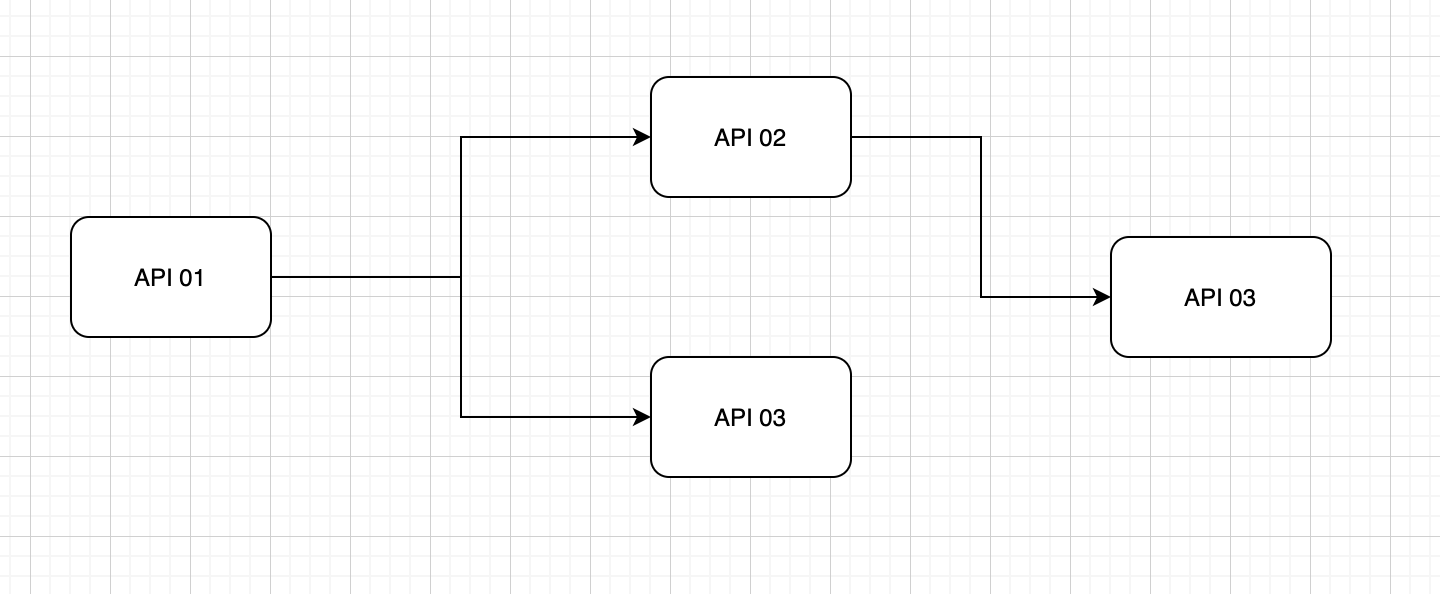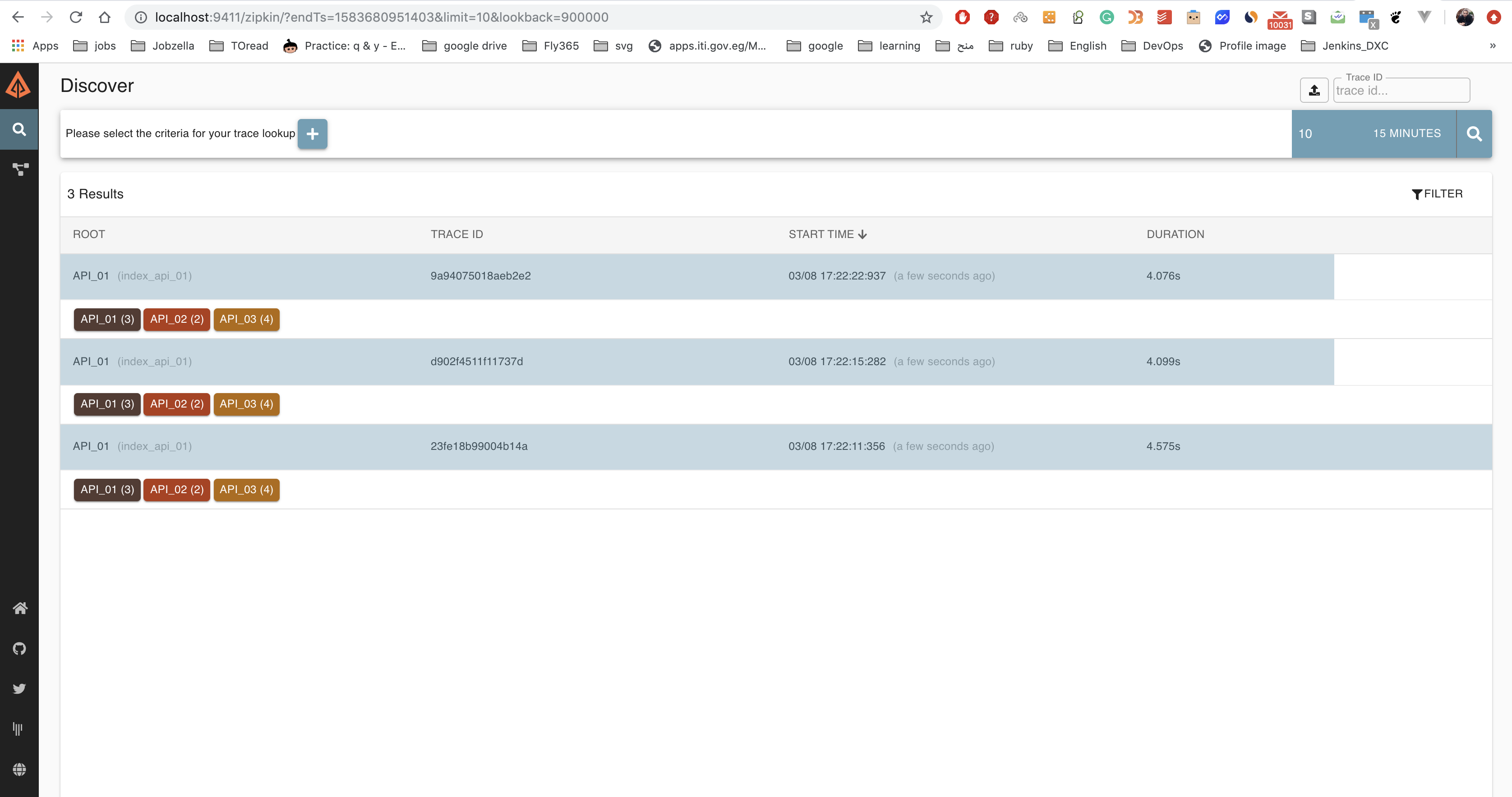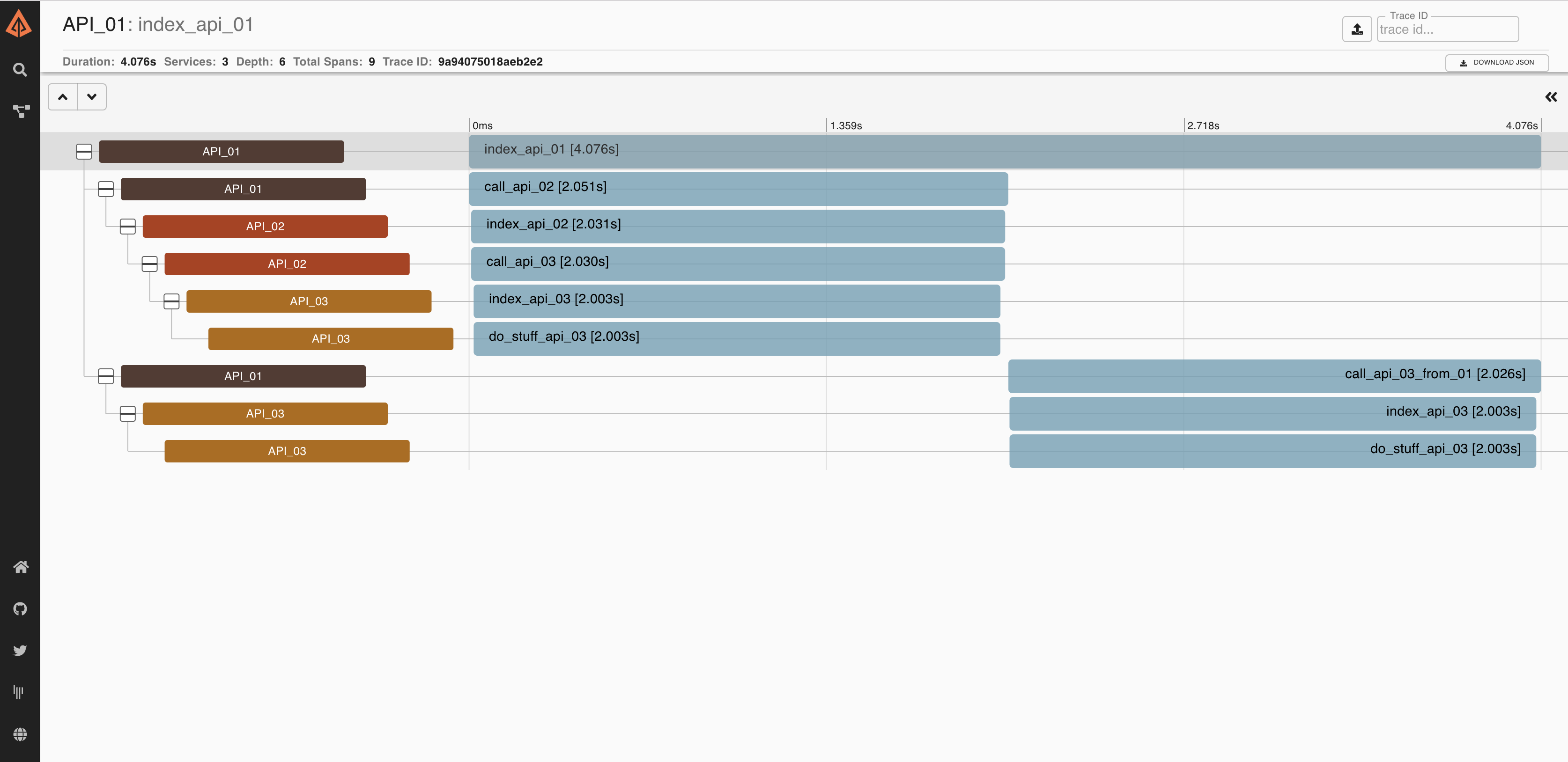This repo contains a demo of how to trace requests from Flask APIs using Zipkin.
To start the containers run the following command:
docker-compose up --build
Visit the api_01's URL [ http://localhost:5001 ]
As shown in the following image, api_01 will send two requests, one to api_02 and the other to api_03. api_02 will send a request to api_03.
To see this on Zipkin, visit Zipkin's URL [ http://localhost:9411/zipkin ] then click on the search button to get traces saved.
Select a trace from the list.
The request's trace.As you can see from the previous image, api_01 made 2 requests 'to api_02 and api_03'. Also, api_02 made a request to 'api_03' Each row here represents a span. You can create spans whenever it is needed.
Zipkin is a distributed tracing system. Using Zipkin will make you able to see all the services that a request goes through, determine the duration time needed for each service.
From OpenTracing website: Distributed tracing, also called distributed request tracing, is a method used to profile and monitor applications, especially those built using a microservices architecture. Distributed tracing helps pinpoint where failures occur and what causes poor performance.
Flask is a lightweight WSGI framework. It is one of the most popular Python frameworks. Here is their documentation.
py_zipkin provides a context manager/decorator along with some utilities to facilitate the usage of Zipkin in Python applications. You can read more about it here
We use py_zipkin here as the application is a Python app. If you are interested in other languages, you can find a list of supported tracers by Zipkin here
Docker Compose is a tool that you can use to define and run multi docker containers. You use a YAML file to define all services and with just one command you can start them all. To learn more about Compose, see their documentation.


